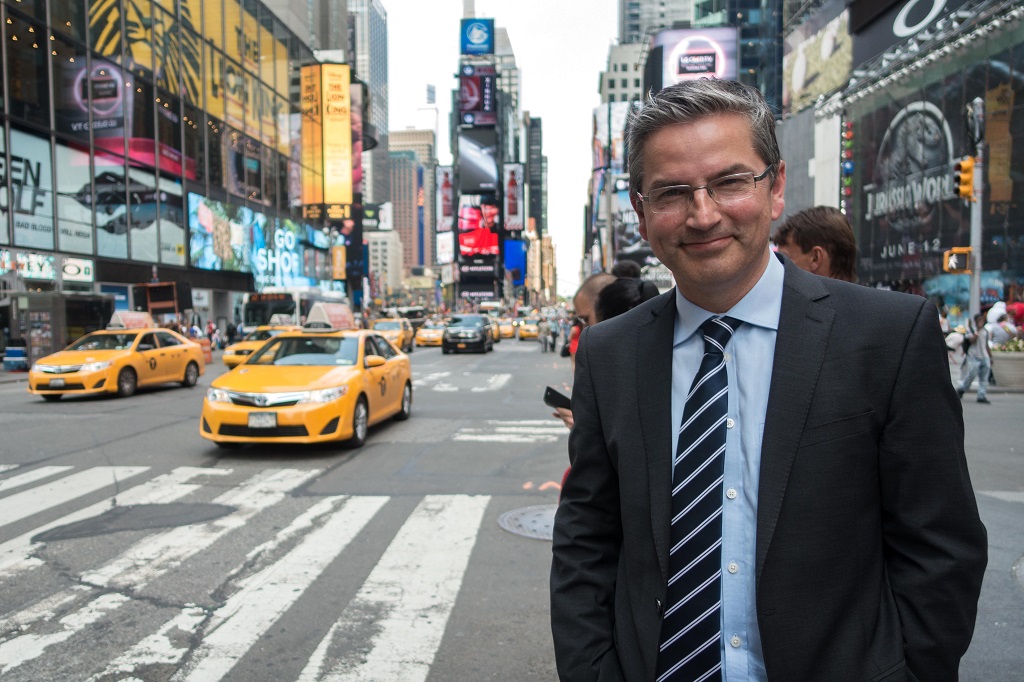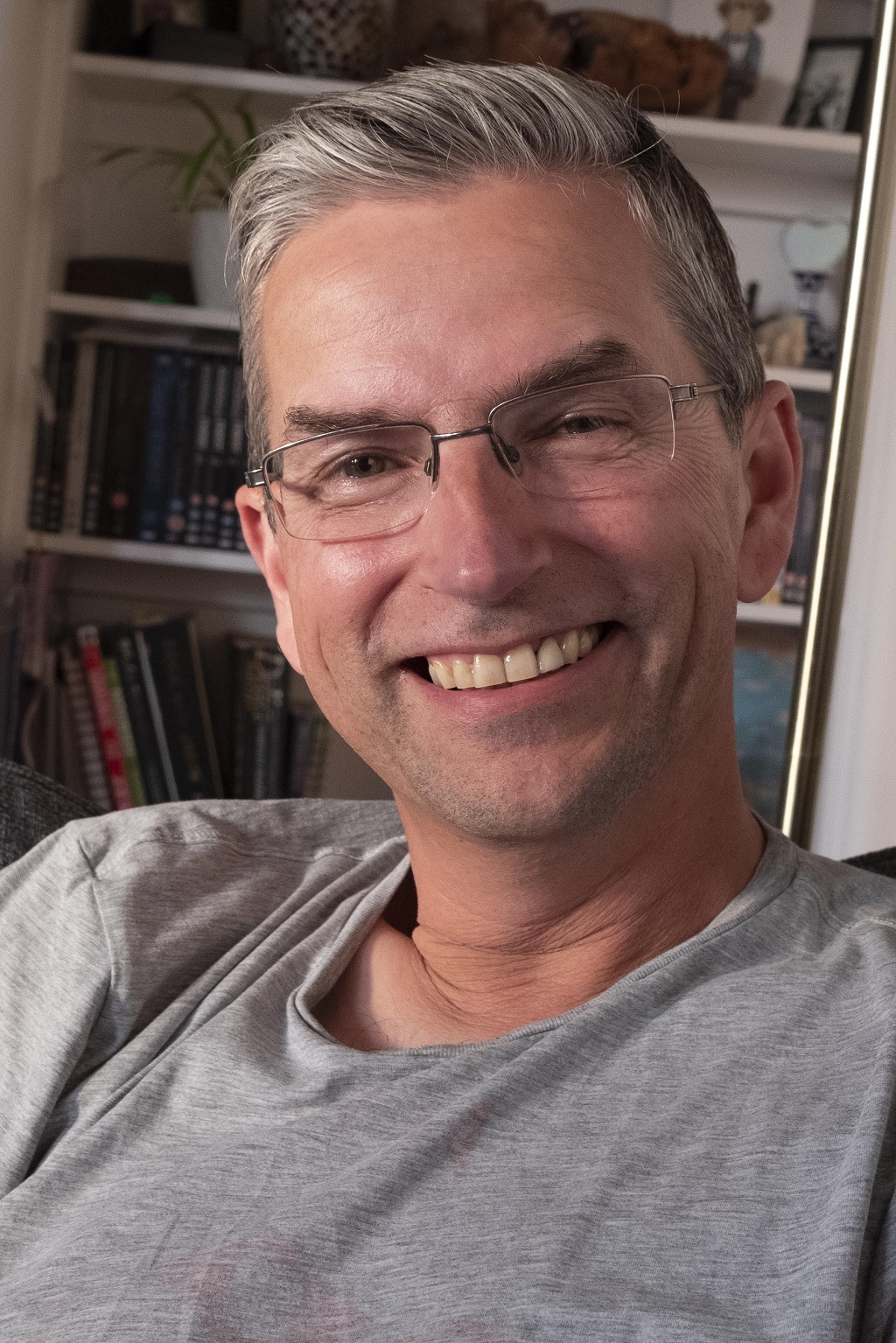
TV news reporter David Cowan’s mouth cancer journey
It was in the wake of his 50th birthday that David Cowan first noticed something was wrong.
A familiar face on TV, the journalist, from Dundee, always felt he was in pretty good shape. He made a conscious effort to keep active and he didn’t smoke. And even though he enjoyed a drink in moderation, cancer was far from being on his radar.
Unfortunately, that all changed.
The father-of-two first noticed a small lump on his neck, about the size of a grape. It was painless but thankfully David was clued up enough to know that, when it didn’t go away, he should get it checked out.
David admitted: ‘I was worried from day one because of what I read on the internet and because I have always been a bit of a hypochondriac.’
David’s GP referred him to a specialist who examined the lump in his neck with a group of medical students looking on. Afterwards they stayed in the room when David went to sit outside in the corridor.
He revealed: ‘I could hear the doctor talking to them and when they left and walked past, none of them looked at me. It felt like a jury not looking at the condemned man. I knew it wasn’t good.’

David Cowan in New York for STV
Unfortunately, David’s worst fears were confirmed when he was diagnosed with tonsil cancer. Thankfully however, David had caught the cancer in its early stages. This gave him the best possible chance of beating the disease.
David, a reporter for BBC Scotland, had heard of mouth cancer in smokers before but had no idea that it could appear on the tonsils. It was caused by the Human Papillomavirus (HPV), the doctor told him. David had not heard of HPV, not least that it could cause cancer. In fact, HPV is estimated to be the cause of around 5% of cancers worldwide.
David said of the diagnosis: ‘We were astonished. I was terrified. I was upset, thinking about the kids and our family.’
David was referred to a specialist who laid out his care plan; a six-week course of radiotherapy and two rounds of chemotherapy.
‘You’ll need to get some of your teeth removed,’ the surgeon added. This last bit caught David off-guard. Radiotherapy was expected but teeth removal? Losing teeth was not something he had thought of.
Often, mouth cancer patients are advised to have teeth removed because the radiotherapy can cause serious damage to teeth and lead to infection that can be very difficult to correct. Therefore, removing teeth that may come into contact with the radiotherapy beams is a preventative measure and is strongly recommended.
‘Radiotherapy was gruelling,’ David recounted. ‘During treatment I had to be fed through a feeding tube and I would throw up if I simply drunk water, it was a tough time.’
Throughout it all though David kept up a positive attitude: ‘With cancer, it’s inevitable you will have bad weeks but it’s important to hold strong and tell yourself that it won’t last forever and you will get better. I decided to put my faith in the experts and radiographers. I decided to trust them and put myself in their care. I took all the help that was offered and waited to be fixed. In the end, it all happened as they said it would happen.’
David was given the all clear roughly six months after his initial diagnosis.

David Cowan after his mouth cancer treatment
Since being given the all-clear David says he’s been trying to get back up his strength physically, but progress is slow.
He added: ‘I’m physically still trying to build my energy up. I lost my sense of taste during the treatment. It’s almost back to normal but unfortunately I still struggle with strong curries and whisky! It did take a big toll on me mentally. It’s changed how I think. On the upside I can appreciate things in life a lot more now.’
David has the help and support of Vicki, along with his son and daughter. He is now determined to keep on making progress, building back up to where he was physically before mouth cancer. He is grateful for all the care he received and urges anyone who spots an unusual change in their mouth to get it checked out by a dentist or GP.
David’s story shows the importance of If in doubt, get checked out! If David had not got his lump checked out as soon as he did he may not have been able to be here to tell his story.
The Oral Health Foundation is the leading national charity working to improve oral health. Their goal is to improve people’s lives by reducing the harm caused by oral diseases – many of which are entirely preventable.
Established more than 45 years ago, we continue to provide expert, independent and impartial advice on all aspects of oral health to those who need it They work closely with Government, dental and health professionals, manufacturers, the dental trade, national and local agencies and the public, to achieve our mission of addressing the inequalities which exist in oral health, changing people’s lives for the better.
Visit www.dentalhealth.org for more information.
TAGS

